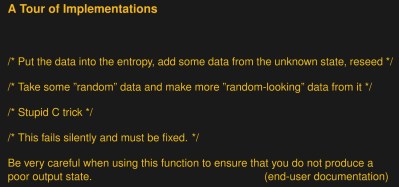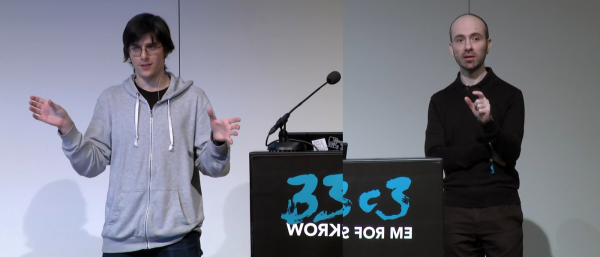One of the standout talks at the 33rd Chaos Communications Congress concerned pseudo-random-number generators (PRNGs). [Vladimir Klebanov] (right) and [Felix Dörre] (left) provided a framework for making sure that PRNGs are doing what they should. Along the way, they discovered a flaw in Libgcrypt/GNUPG, which they got fixed. Woot.
 Cryptographically secure random numbers actually matter, a lot. If you’re old enough to remember the Debian OpenSSL debacle of 2008, essentially every Internet service was backdoorable due to bad random numbers. So they matter. [Vladimir] makes the case that writing good random number generators is very, very hard. Consequently, it’s very important that their output be tested very, very well.
Cryptographically secure random numbers actually matter, a lot. If you’re old enough to remember the Debian OpenSSL debacle of 2008, essentially every Internet service was backdoorable due to bad random numbers. So they matter. [Vladimir] makes the case that writing good random number generators is very, very hard. Consequently, it’s very important that their output be tested very, very well.
So how can we test them? [Vladimir] warns against our first instinct, running a statistical test suite like DIEHARD. He points out (correctly) that running any algorithm through a good enough hash function will pass statistical tests, but that doesn’t mean it’s good for cryptography.
Continue reading “33C3: How Can You Trust Your Random Numbers?”












